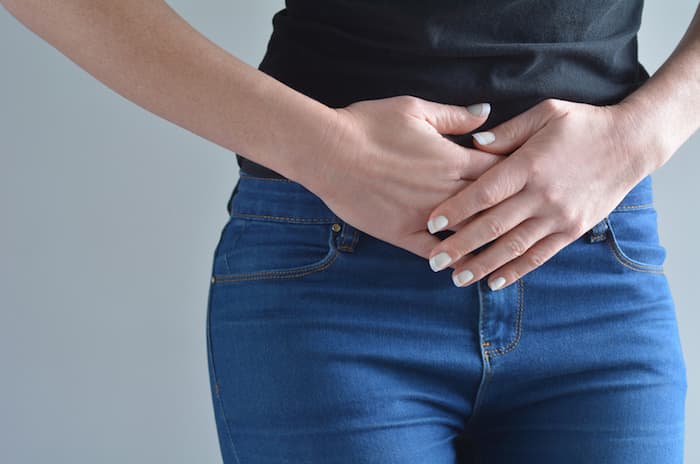- Calls to this hotline are currently being directed to Within Health or Eating Disorder Solutions
- Representatives are standing by 24/7 to help answer your questions
- All calls are confidential and HIPAA compliant
- There is no obligation or cost to call
- Eating Disorder Hope does not receive any commissions or fees dependent upon which provider you select
- Additional treatment providers are located on our directory or samhsa.gov
Laxative Abuse in Bulimia: Physical Consequences, Complications and Ramifications
The eating disorder bulimia nervosa is traditionally thought to include purge behavior by means of vomiting.
However, the DSM-V encapsulates the full picture of bulimia nervosa by including all inappropriate compensatory behaviors used following binges such as laxatives, diuretics, other medications, fasting, or excessive exercise in addition to self-induced vomiting.
Individuals using compensatory behaviors often report increased distress and inability to tolerate the anxiety that follows after a subjective or objective binge. Individuals attempt to physically get rid of food and calories consumed by any means necessary.
The fear of gaining weight and wanting to feel “empty” is so strong that individuals often overlook how damaging these compensatory behaviors can be to their health.
The Laxative Myth
Individuals who seek to use laxatives attempt to avoid weight gain by inducing diarrhea. The tricky thing about using laxatives as a way to control weight is that it simply does not work. Laxatives actually work by targeting the large intestine.
This means that once food passes through the small intestine, nutrients from the food have already been absorbed into the body (Brown University Health Services, 2013). Any weight loss observed is solely from the loss of water- not calories or fat-and will only be temporary if the individual rehydrates themselves appropriately.
Physical Consequences and Complications
Dehydration
The most common consequence of laxative abuse is dehydration. Significant water loss is a side effect of diarrhea and can pose a great health risk. Symptoms of dehydration range from dizziness, weakness, confusion, fainting, and prolonged dehydration can lead to death.
Electrolyte Imbalance
Laxatives work near the end of the bowel and impact not only absorption of water but also crucial electrolytes such as sodium and potassium. Electrolytes are necessary to maintain nerve and muscle function throughout the body.
By depleting the supply of electrolytes, the imbalance in the body can lead to:
- Low blood pressure
- Confusion
- Tachycardia (rapid heart rate)
- Trembling
- Muscle weakness
- Stiff and achy joints
- Sunken eyes
Prolonged and severe electrolyte imbalance can lead to shock, cerebral edema (swelling in the brain), seizures, and coma (Eating Disorders Review, 1999).
Bloating/Edema
As laxatives cause the loss of fluids, the body responds by trying to protect itself from dehydration and ends up retaining fluid.
Edema is the swelling of the fluid buildup and can decrease flexibility of the joints, cause tight or stiff skin, pain and difficulty walking, and decrease blood circulation.
Bleeding
Individuals may notice blood in their stools after excessive use of laxatives. Chronic blood loss can result in anemia. Symptoms of anemia include:
- Exhaustion
- Irregular heartbeat
- Chest pain
- Shortness of breath
- Dizziness
- Cold hands and feet
Constipation
It sounds contraindicative but prolonged use of laxatives actually results in constipation.
Excessive use of laxatives can result in “reflex constipation” as the bowel loses its ability to perform its natural function. Moreover, this constipation can cause individuals to increase the dosage of laxatives which only exacerbates these physical consequences.
Permanent impairment
Excessive use of laxatives can also result in permanent impairment of the digestive system.
This means that there is a chance of paralysis of the muscles used in digestion which can lead to the surgical removal of part or the entire colon and requires dependence of a colostomy bag.
Increased risk of cancer
Prolonged abuse of laxatives and damage to the colon increases an individual’s risk of colon cancer.
Laxative Withdrawal
The severity of laxative abuse is not an indicator of the severity of withdrawal. The best way to lessen effects of the withdrawal is to prepare in advance and develop a plan for coping. Common side effects are constipation, fluid retention, and temporary weight gain (Eating Disorders Review, 1999).
Just as any weight loss from using laxatives is temporary; it is important to remember that this weight gain is temporary and is mainly due to increased fluid retention. These symptoms can be especially difficult for an individual struggling with an eating disorder as they are highly reactive to weight gain and “feeling fat” (a statement often used to describe bloating, discomfort, and any unpleasant emotions). Withdrawal typically lasts anywhere from 1-3 weeks.
Seeking Help
It is crucial to seek help from a treatment team including a physician, therapist, and registered dietitian, specialized in eating disorders. Depending on the severity of the laxative abuse, hospitalization might first be required to stabilize these medical complications. There is hope and there is life after an eating disorder; full recovery is possible!
Contributor: By: Neathery Thurmond, LMSW, Staff Therapist, Hill Country Recovery Center
References:
- Brown University Health Services. (2013). Laxative Abuse: Patient Education Series. Accessed
at www.brown.edu/health. - Eating Disorders Review. (1999). Laxative abuse: Medical complications. 10(5). Gurze Books.
The opinions and views of our guest contributors are shared to provide a broad perspective of eating disorders. These are not necessarily the views of Eating Disorder Hope, but an effort to offer discussion of various issues by different concerned individuals.
Last Updated & Reviewed By: Jacquelyn Ekern, MS, LPC on April 18th, 2015
Published on EatingDisorderHope.com
Related Reading
-
- What is Bulimia: Symptoms, Complications, & Causes
- Physical Side Effects of Bulimia: Be Aware of Some of These Signs
- How Do Antidepressants Treat Bulimia?
- Electrolytes and Bulimia: Why Is This a Big Deal?
- Bulimia: Dental Problems Caused By Repeated Vomiting
- When Your Spouse Has Bulimia
- Bulimia and Starvation: How Restriction Perpetuates the Binge-Purge Cycle
- IPT Therapy – How it is Used for Bulimia Nervosa
- Weight Fluctuation, Chronic Dieting & Bulimia: How Bad is it on Your Body
- Bulimia and the Brain: How Is Neurobiology a Factor?


